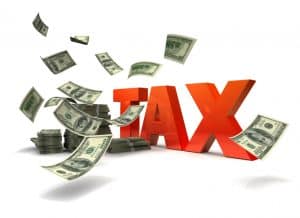How Trump’s Tax Plan Could Upend the Housing Market

The tax plan includes significant individual income tax system reforms, including the doubling of the standard tax deduction and the elimination of most itemized deductions, except those for mortgage interest and charitable contributions.
Given the increased standard deduction ($12,000 for single and $24,000 for married taxpayers), many more taxpayers will forgo itemizing and take the standard deduction. Based on an analysis of an earlier House Republican tax reform plan, the Tax Policy Center estimated that 84% of current itemizers would take the standard deduction if it were doubled. Even more taxpayers will take the standard deduction under the recent Trump proposal due to the elimination of state and local tax itemized deduction.
Even though mortgage interest deduction remains, it will no longer have value for current itemizers who would take the standard deduction under the Trump plan. Only the few taxpayers who would still itemize will receive any income tax savings from mortgage interest, however, those tax savings will likely be substantially smaller than under existing tax rules.
The elimination of mortgage-related tax savings for most homeowners, and reduction for others, compounded with the loss of tax savings from deducting property taxes means the after-tax cost of home ownership will increase. A taxpayer in the 25% tax bracket with $11,000 in mortgage interest and $5,000 in real estate taxes would receive tax savings from these itemized deductions of $4,000, or $333 per month, under the current law. The elimination of the home-ownership tax subsidies means that the after-tax cost of home ownership will increase.
The tax reform proposal’s reduction to homeowner tax subsidies could lead to more people deciding to rent homes because it may be a lower-cost alternative to purchasing. Although the proposal lacks specifics, it does not appear to reduce the tax subsidies afforded to owners of residential rental real estate. Rental property owners may continue to deduct interest paid to finance the purchase of rental properties and can deduct state and local property taxes. These items are not considered itemized deductions; instead, they are deductions in computing net rental income. The disallowance of the state and local tax deduction under the Trump plan only applies to an individual taxpayer’s itemized deductions. Given rental property owners will still receive the federal tax savings from both property mortgage interest and real estate taxes, the Republican proposal creates a stark difference in the tax subsidies between owner-occupied homes and rental properties.
Additionally, unlike homeowners, rental property owners receive tax savings through the deductibility of maintenance costs and depreciation. The rental property owner may also avoid tax upon the sale of the property if it is exchanged for another property. The Trump proposals may also further benefit rental property owners through the reduced tax rate of 25% on partnerships and other pass-through entities commonly used in the real estate industry.
Although the owners are the ones who actually receive the tax savings from the various allowed deductions, the tenants likely benefit, albeit indirectly, through lower rental rates. In a competitive market, the rent charged to the tenant should be lower due to the tax benefits afforded the rental property owners.
In summary, residential rental properties, like owner-occupied housing, currently receive tax subsidies under existing tax rules, but the Trump tax plan significantly shifts the tax system to favor rentals over owner-occupied homes. This could result in increased cost of home ownership and lead to more people deciding to rent. The dramatic increase in the relative tax advantage for residential rental real estate could lead to increased home rentals in your neighborhood. Maybe it will be cost-advantageous to sell your home to a residential real estate firm and lease it back?
Unfortunately, the tax reform proposal provides limited policy justification for many of its changes. While there might be a compelling argument to eliminate or reduce, owner-occupied housing tax subsidies, it is also important to simultaneously evaluate the tax subsidies provided to rental property owners. Should the tax system treat owner-occupied homes differently than rental properties? If so, how differently? These important questions should be part of the tax policy debate with consideration also given to the consequences generated from home ownership relative to rentals.
Source: fortune.com















 Accessibility
Accessibility